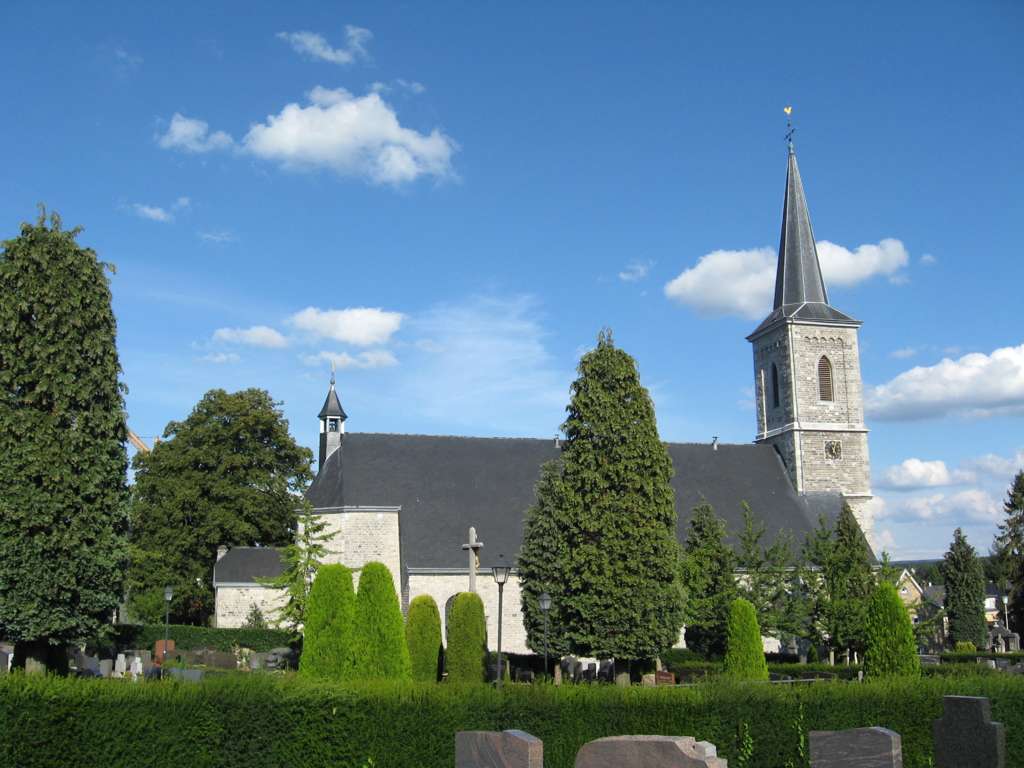Peacefulness at the foot of the "Hohes Venn"
Raeren is an old pottery village characterized not only by its placid forests and meadows but also by many historical buildings.
Right next to Raeren castle (14th c.), for instance, is situated "Haus Raeren" (14th c.), a late medieval tower house that has retained its original design. Surrounded by a moat on which one might see a family of white swans, the historical building with its small windows and loopholes is situated in the middle of a neat park.
"Haus Raeren" is private property and belongs to the family Blank. The father of the current owner was André Blank, a famous painter whose oil paintings and glass windows can be admired in the Pottery Museum Raeren, the parish church St. Nicholas and the "Marienheim".
Further historical buldings in Raeren are the "Knoppenburg" (17th c.), "Haus Bergscheid" (16th c.), the St. Nicholas Church (18th c.) or the Anna Chapel (18th c.) near the museum.

Numerous meadow paths running through the spacious landscape invite for long walks and lead to the numerous historical buildings previously mentioned.
A total of six hiking trails lead from the Pottery Museum Raeren to different parts of the village, inviting travelers to explore Raeren on their own. Hiking maps are available at the tourist office in the Pottery Museum Raeren.
.jpg)
One hiking tour, titled "On the traces of the Raeren Potters", starts right beside the Pottery Museum and leads past "Haus Raeren" and the Periolbach to the so-called "Hohe Brücke" (High Bridge). This leads at a height of seven meters over the bed of the "Periolbach", a former sunken road used to transport Raeren ceramics on horses and carts. The spot where the carters used to drive onto the road is still visible today. The entire area is part of the protected landscape of Raeren.
A few hundred meters further is the house "Am Blar", where the grandparents of the famous German poet Josef Ponten used to live in the early 20th century. The path finally leads to the "Marienheim", an idyllic former bark mill (17th c.) which today serves as one of the best and most comfortable homes for the elderly in the region.